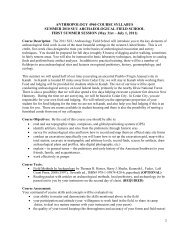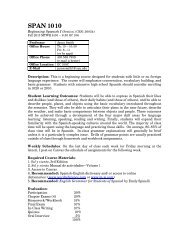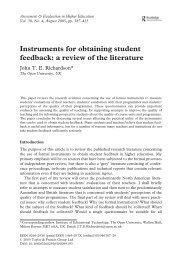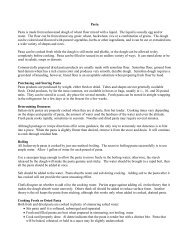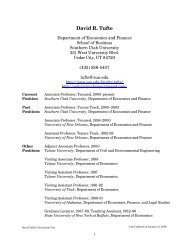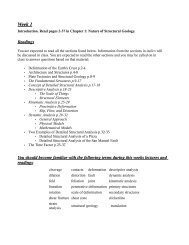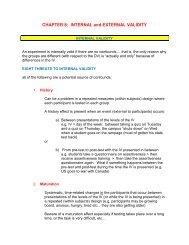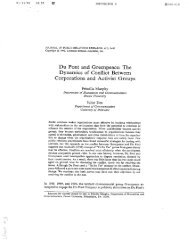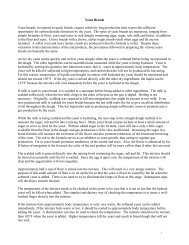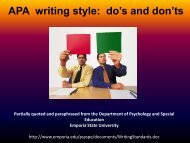Jeffrey Barnes: Self-Evident Truths - Southern Utah University
Jeffrey Barnes: Self-Evident Truths - Southern Utah University
Jeffrey Barnes: Self-Evident Truths - Southern Utah University
Create successful ePaper yourself
Turn your PDF publications into a flip-book with our unique Google optimized e-Paper software.
HONESTY AND INTEGRITY<br />
Figure 3.<br />
Seek to Possess Individual Honesty and Integrity<br />
Proper Proper Greater<br />
Disposition Values Happiness<br />
Observations about honesty and greater trusting<br />
personal and others’ recognizes integrity are leads to relationships, strength<br />
experience regarding values in interpersonal relationships.<br />
honesty and integrity to incorporate Opportunities arise from<br />
in a person’s ethic such trusting relationships<br />
and thus, society is benefited.<br />
_______________________________________________________________________<br />
Does your personal experience support the rationale of this model? Have your parents,<br />
clergy, or other trusted individuals ever taught you this truth? Is this truth assumption<br />
naïve and simplistic?<br />
________________________________________________________________________<br />
Marcus Arelius said,<br />
“A man ought to be upright, not kept upright (AICPA, 1989).”<br />
A person is honest who refuses to lie, steal, or deceive in any way. Honesty suggests an<br />
active or anxious regard for the standards of one’s profession, calling, or position. An<br />
honest person is free from fraud or deception. A line of philosophical inquiry always<br />
creates a moral dilemma with only two choices. For instance, “Would you lie to save<br />
your job?” What is that all about? Trying to find out what degree of honesty a person<br />
has? Is the breaking down of every statement’s ingredient to hypothetical principles<br />
always the best way to find truth? Moral dilemmas do exist, however, many of these<br />
kinds of questions are often false dilemmas and other ethical decision models, other than<br />
utilitarian or Kantian imperatives, must explain the proper behavior under these<br />
circumstances. Rarely does life present itself with only two such alternative choices.<br />
There are theories of moral behavior that can provide excellent models for understanding<br />
proper human behavior. W.D. Ross’s obligation-based theory is an excellent alternative<br />
to the principle of utility or Kant’s categorical imperative. Ross argues,<br />
There are some basic rules of moral obligation and that they do not derive from<br />
either the principle of utility or Kant’s categorical imperative. Some of Ross’s<br />
basic rules are as follows: “Promises create obligations of fidelity.” “Wrongful<br />
actions create obligations of reparation.” “The generous gifts of friends create<br />
obligations of gratitude.” . . . Ross defends his principles on the grounds of their<br />
faithfulness to the ordinary moral beliefs and judgments. He argues that to<br />
Page 17 of 33




